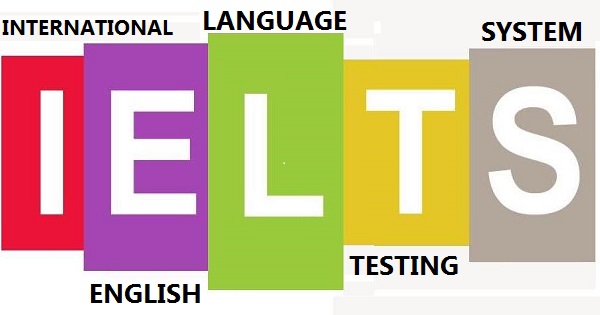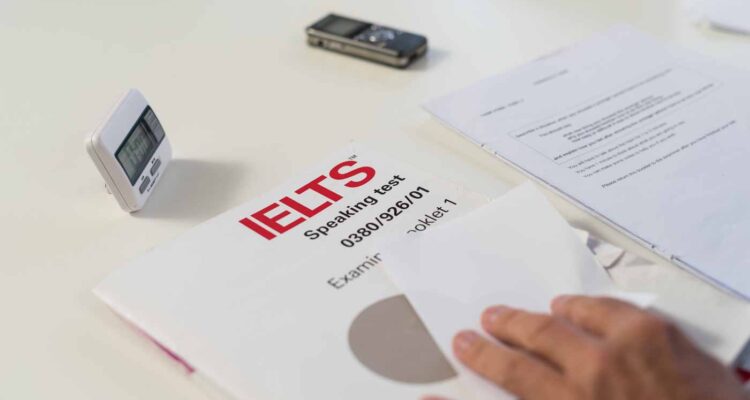Of the world’s approximately 7.5 billion people, 1.5 billion speak English, which is equivalent to 20 percent of the global population.
In such a crowded and competitive market, you need to have something, apart from your impressive CV, that differentiates you. This thing is nothing other than the IELTS test.
The IELTS test shows that you not only have a good command of the English language but that you understand English-speaking culture.
Below you will find every nitty-gritty detail you need to know about this test.
What is IELTS?

The International English Language Testing System (IELTS) is an assessment whose primary purpose is to measure the language skills of people who wish to study or work in areas where English is the most widely used language.
The number of people studying and wishing to study abroad is growing every day.
For example, in 2019, the total number of international students enrolled in U.S. universities was 1,095,299, or 5.5 percent of all U.S. students. As a result, the IELTS has become one of the most highly rated English language evaluation tests among applicants for studies abroad. In 2018 alone, research shows that people took a total of 3.5 million IELTS tests.
IELTS is for anyone seeking study and employment opportunities in English-speaking countries. The test assesses their ability to overcome the language gap.
IELTS is not compulsory in most foreign universities for admission. However, it can play an essential role in the student visa issuance process.
Also, keep in mind that it is the only English language test accepted by UK Visas and Immigration (UKVI) for visa applicants applying to universities outside and inside the UK.
Another important detail about the IELTS is that most universities in the UK and Australia, Canada, and about 4000 institutions in the USA accept IELTS results. Not to mention the thousands of institutions in other English-speaking countries that require the test.
What Score Do You Need to Succeed?

From undergraduate to postgraduate level, foreign universities use IELTS scores to examine whether a person is linguistically able to follow the curriculum. Even many non-English speaking countries require IELTS scores for courses that are taught in English.
In general, there are minimum IELTS criteria that candidates must meet in order to be admitted. Therefore, anyone with an ideal IELTS score equal to or above the minimum standards will be more likely to be admitted to a university or get a work visa as opposed to those with an IELTS score below the minimum criteria.
According to the British Council, if you get a 9 on the exam, you are considered an ‘expert’ in English. A score of 8, on the other hand, means that you are a ‘very good’ speaker.
Basically, IELTS scores almost always range from 1 to 9, with 1 for “non-user” and 9 for “expert”. You can also get a decimal score ending in .5, as in 4.5, 5.5, 8.5. Each IELTS skill gets a group score in this range. You also get an overall score for your test as a whole, which represents your general English level. However, the ideal and average IELTS score recommended for IELTS is 6.5.
Why Do You Need to Take the IELTS Test?

As one of the most common English tests, IELTS is required by companies and schools worldwide. Find out below why taking this test will give you a boost to your professional and academic future.
1. It’s great for your career.

Mentioning a good IELTS score can be advantageous when looking for a job, an internship abroad, or a scholarship. When faced with two identical CVs for an international position, recruiters will prefer the candidate who has taken IELTS and scored well.
In one study, language barriers were cited as one of the reasons why 40 percent of global virtual teams do not succeed. The IELTS test shows you can communicate comfortably and have an excellent grasp of the English culture, which is vital to employers.
2. It’s a good training exercise for your English language skills.

The IELTS test allows you to apply your language skills as if you were in an everyday situation or interacting with native English speakers.
It is designed to evaluate different English skills: speaking, listening, writing, and reading. It also includes a live conversation with an assessor. That prepares you for real-life situations, whether you are talking to clients at work, international colleagues at school, or even on a trip abroad.
With these standards, you will have to practice rigorously to be up to the task, which is a plus for your language skills. If you are in the UAE and need help to improve your language skills, you can take English courses in Abu Dhabi.
3. It’s an accurate assessment of your English language mastery.

The IELTS test ensures accurate assessment by examiners who use strict criteria in each test to give you grades. That means that the result accurately reflects your level of English mastery.
IELTS results follow a 9-band grading system. And although there is no cut-off score for declaring you ‘failed’ and ‘approved’, the majority of institutions require results around 6 and 7 points. If you do not achieve the average score, you will be recommended to retake the test.
Keep in mind that the 9-band system is used worldwide, so the results’ interpretation is reasonably consistent.
4. It’s recognized worldwide.

Over 9,000 organizations accept IELTS in more than 135 countries. You can use it for educational, immigration, and professional purposes. In addition to its good international reputation, it is also the most recognized English language test in the world because of the high-quality control standards that its questions must meet.
Prepare for the IELTS

IELTS is a crucial exam for those who wish to study or work abroad.
In order to avoid headaches during the visa process, it is essential to obtain an ideal score between 6 and 7. And like everything else, IELTS is not easy, so you should prepare accordingly.
The IELTS centers in Abu Dhabi are leading organizations in IELTS preparatory coaching.
Get in touch to start preparing now.




